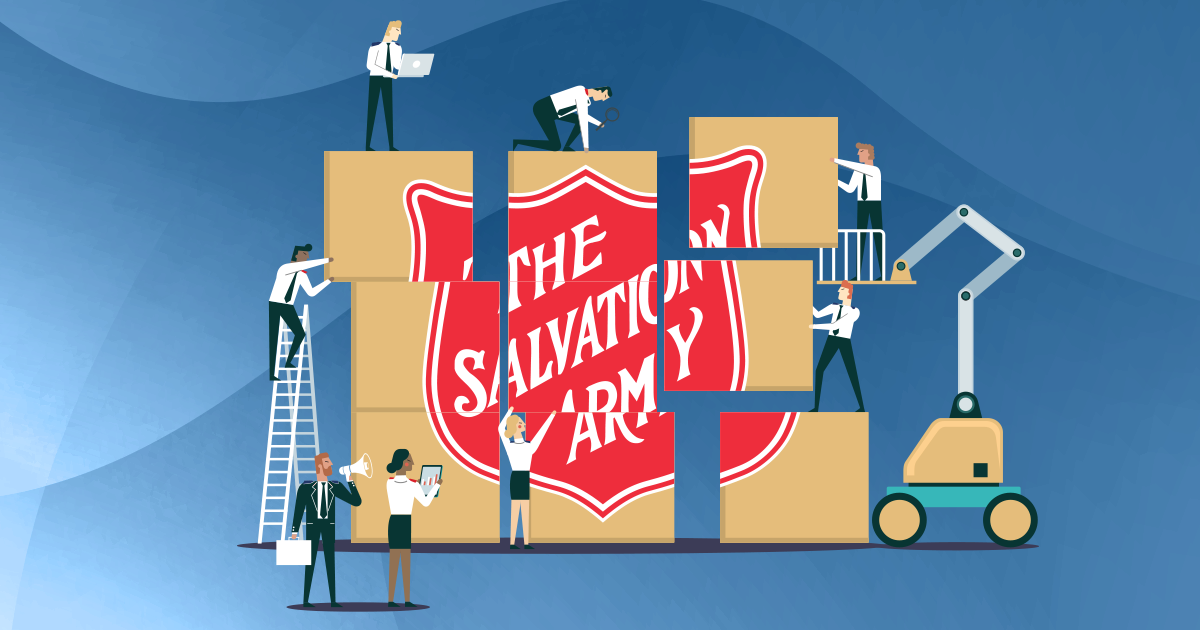The Salvation Army in Canada and Bermuda is committed to our mission: to share the love of Jesus Christ, meet human needs and be a transforming influence in the communities of our world. This mission is reflected in the lives of our mission partners and in the decisions and behaviours present wherever we serve.
Learning and understanding the mission is not a one-time deal. It must be continuously taught, referenced and reinforced throughout our time in ministry. Assessing the values present in Salvation Army culture provides insight into what enables effective mission delivery and what obstacles might get in the way.
One way we do this is through the territorial values survey. Earlier this year, all mission partners of the Canada and Bermuda Territory were invited to participate in the seventh biannual territorial values survey, administered by the Ethics Centre. We were pleased to receive 706 responses.
The survey emphasizes the importance of values in all aspects of ministry. It highlights areas of alignment and identifies any challenging issues that affect our organizational culture. Your responses help provide a deeper understanding of our culture and how it supports the territorial mission, vision and values. They also reveal the relationship between personal values, values present in the current culture and values that mission partners believe are most important for mission delivery.
This year, our mission partners identified three values in the observed current culture and the desired culture within the organization: faith, community involvement and mission focus. Faith was also identified as a top personal value. This indicates alignment between what is happening in the culture and what mission partners believe is essential for carrying out our territorial mission.
One of The Salvation Army’s territorial values—service—showed up in the top current culture values. This is a good thing! The other three values—dignity, stewardship and hope—did not show up in the top culture values. This provokes questions. Are the territorial values being lived across the territory? Where might we need to be more intentional about integrating our values and mission?
Below are the top 10 values selected by survey participants for each question:
The values/behaviours that most reflect who you are, not who you desire to become.
Family
Caring
Accountability
Faith
Empathy
Commitment
Integrity
Respect
Intimacy with God
Balance (home/work)
The values/behaviours that, from your experience, best describe how The Salvation Army in your context currently operates.
Faith
Brand Image
Hierarchy
Community Involvement
Bureaucracy
Mission Focus
Caring
Service
Tradition
Control
The values/behaviours that you believe are essential for The Salvation Army in your context to reach its highest potential.
Accountability
Intimacy with God
Community Involvement
Faith
Adaptability
Inclusiveness
Transparency
Mission Focus
Open Communication
Information Sharing
The results of this survey demonstrate a group of people who care deeply for others. Your personal and professional relationships matter to you. You demonstrate ownership of actions and willingness to devote your time and energy to the mission of the organization.
The current culture is guided by deeply held faith. It fosters a commitment to support and serve those in need in the local community. Mission partners appreciate the history and the good reputation The Salvation Army has in society. Still, inflexible structures and processes hinder your efforts. Having order and structure can be necessary. However, it can also be restrictive and get in the way of progress.
Mission partners recognize a need to grow and evolve, paying close attention to the mission and its future legacy. You resonate with the purpose of the organization and want to experience more alignment between its operation and what matters most to you. You want to see improvements in how information and knowledge are shared throughout the organization, creating opportunities for dialogue. Together, you want to continue contributing to the mission in new and meaningful ways, which requires the ability to adapt to the needs of those we serve.
These results bring to mind Ephesians 4:15-16 (NLT), which says, “Instead, we will speak the truth in love, growing in every way more and more like Christ, who is the head of his body, the church. He makes the whole body fit together perfectly. As each part does its own special work, it helps the other parts grow, so that the whole body is healthy and growing and full of love.”
This territory is made up of people who believe in the mission, who care for one another and feel called to help those in need. There are many different ministry units and contexts, and there is a desire to work and grow together to share the love of Jesus, meet human needs and be a transforming influence in the communities of our world.
These survey results have the potential to make an impact on our culture. Results have been presented to the spiritual and denominational affairs board. Territorial leaders have debriefed the results and identified key findings. These survey results will provide insight for work around one of the territory’s strategic pillars—Design for People. Leaders will continue to unpack these results to improve alignment between the values present in the organization and those that are essential for the organization to deliver its mission.
All ministry units are encouraged to share and discuss these results in their contexts. It helps us all to know what the Army at work truly values. Let’s engage with these results to continue improving the culture of the Canada and Bermuda Territory.
If you are interested in a debrief about the results or a workshop on values, contact the Ethics Centre. To learn more about our territorial mission, mission and values, visit salvationarmyvalues.ca.
Emily MacFarlane is a consultant, management and organizational ethics at The Salvation Army’s Ethics Centre in Winnipeg.










Leave a Comment